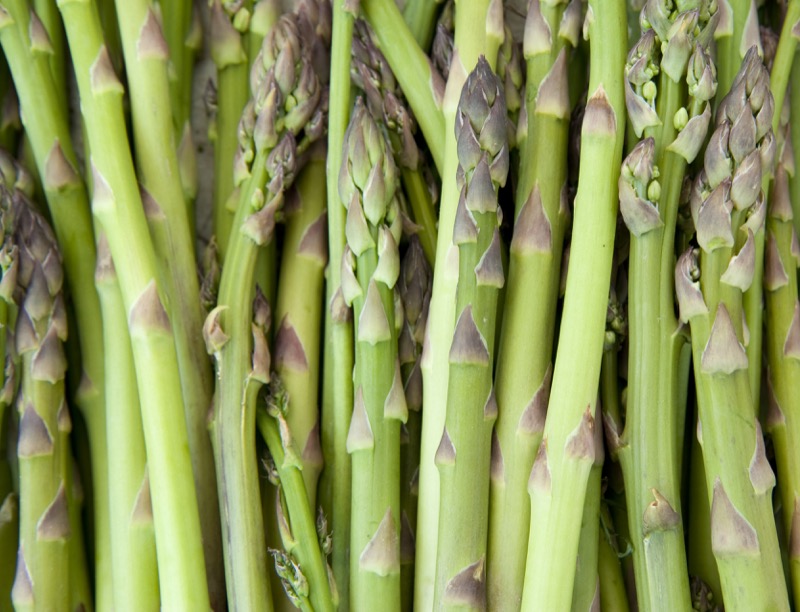Our Boxes
| Vegetables
| Fruit
| Salad
| Drinks
| Meats
| Fish
| Dairy
| Cheese
Bakery | Herbs | Other Bits | Snacks | Seasonings | Oils
Bakery | Herbs | Other Bits | Snacks | Seasonings | Oils
Braunton Asparagus

Asparagus is a young tender shoot (spear) vegetable, emerging out from its underground root system. The flavorful spears are a favorite spring season delicacies. Their use as food was well recognized by the ancient Greeks and Romans as a prized delicacy. One of the oldest recorded vegetables, it thought to have originated along the coastal regions of eastern Mediterranean and Asia Minor regions.
Nutrition:
Asparagus is a very low-calorie vegetable. 100 g fresh spears carry just 20 calories.
Besides, its spears contain moderate levels of dietary fiber. 100 g of fresh spears provide 2.1 g of roughage. Its shoots have long been used in many traditional medicines to treat conditions like dropsy and irritable bowel syndrome.
Fresh asparagus spears are a good source of anti-oxidants such as lutein, zeaxanthin, carotenes, and cryptoxanthins. Together, these flavonoid compounds help remove harmful oxidant free radicals from the body protect it from possible cancer, neurodegenerative diseases, and viral infections.
Fresh asparagus is rich sources of folates. 100 g of spears provide about 54 µg or 14% of RDA of folic acid.
Its shoots are also rich in the B-complex group of vitamins such as thiamin, riboflavin, niacin, vitamin B-6 (pyridoxine), and pantothenic acid. These group of vitamins is essential for optimum cellular enzymatic and metabolic functions.
Fresh asparagus also contains fair amounts of antioxidant vitamins such as vitamin-C, vitamin-A, and vitamin-E. Regular consumption of foods rich in these vitamins helps the body develop resistance against infectious agents and scavenge harmful, pro-inflammatory free radicals from the body.
Its shoots are also an excellent source of vitamin-K.
Asparagus is an excellent source of minerals, especially copper and iron. Also, it has small amounts of some other essential minerals and electrolytes such as calcium, potassium, manganese, and phosphorus.
Storage:
Asparagus should be used as soon as possible after harvesting.
Store in the refrigerator
Source:
Locally sourced whenever possible.
Maximum weight/per g:

